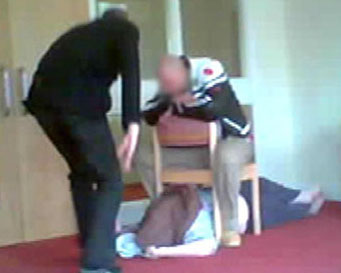
Winterbourne View
The amendment, moved by Lord Low of Dalston and supported by Lord Lester of Herne Hill QC and Lord Pannick QC, makes clear that a person who provides regulated “social care” is to be taken for the purposes of subsection 6(3)(b) of the Human Rights Act 1998 to be exercising a function of a public nature.
It is the latest development in a long-running battle to secure human rights protection for service users who are not in local authority-run care homes.
In YL v Birmingham City Council [2007] UKHL 27, the House of Lords held that in providing care and accommodation for residents placed with it by a local authority, a privately owned care home was not performing functions of a public nature within the meaning of the HRA.
This gap was widely criticised and led to section 145 of the Health and Social Care Act 2008, which provides that a person who provides accommodation, together with nursing or personal care, in a care home for an individual is to be taken to be exercising a public function if the services are provided under statutory arrangements (in other words, provided or arranged by local authorities).
But this did not answer concerns that many care service users, including residential care service users, remained unprotected.
The Government’s position had been that providers of publicly arranged care and support “should consider themselves” bound by section 6 of the HRA. But, Lord Low said in introducing the amendment, this
“is not the same as ‘covered in law’. Secondly, the Joint Committee [on the Bill] was not convinced. It concluded that, as a result of the decision in the YL case, statutory provision is required to ensure this.”This scepticism of the legal value of a Government comment was echoed by Lord Hope of Craighead, recently retired Deputy President of the Supreme Court. In his view, not only did such a comment not have the force of law, but it could not be relied upon in a court to guide a judge and would have no relevance to a decision that the court would have to take in a particular case.
Lord Hope commented that section 6(3)(b) of the HRA was
“one of the few provisions in what was an excellently drafted Act which, in my experience, judges have found rather difficult to apply in practice. The reasons for this were explained by the noble and learned Lord, Lord Neuberger, in YL. He made the point that any reasoned decision about the meaning of that phrase,Lord Hope reminded the House that at the end of his judgment in YL, Lord Neuberger had suggested that the solution would be for the legislature to spell out, if it considered it appropriate, that residents in privately owned care homes should be given Convention rights protection against the proprietors. Lord Hope warned that if this opportunity were missed, that would not go unnoticed by the courts:
‘functions of a public nature’,
risked falling foul of – as he put it – circularity, preconception and arbitrariness.”
“A failure to grasp this opportunity now and to make it clear will be noticed. There is a risk that, if that opportunity is not taken by Parliament now, courts may take this as a sign that Parliament is content with the law as it stands and may be understood to be on the basis of YL.”Lord Hope said he did not see any real risk that a targeted amendment would be taken as a signal in the courts that there were some wider reach in section 6(3)(b) than the specific issue in YL.
Lord Faulks, by contrast, considered that the amendment “amounts to an illegitimate extension of the Human Right Act” and argued that existing remedies of tort or breach of contract would suffice.
Speaking for the Government, Earl Howe agreed that the amendment
“would represent an unprecedented change to the scope of the Human Rights Act. For the first time, it would capture purely private arrangements, such as a privately arranged social care contract between a private care home and a private individual – an arrangement in which there is no statement involvement…An unusual instance of deference to Strasbourg, coming from the Conservatives. One might have thought that protecting the rights of the elderly in care homes – of whatever kind – would be precisely the kind of home-grown right which might appeal to a party which prefers a home-grown solution to the Human Rights Act.
…Arguably, the proposed amendment would mean that, for the first time, we would be legislating for an expansion in scope of the Human Rights Act that included claims that cannot be brought before the European Court of Human Rights”.
The amendment passed 247 to 218, and has been welcomed by human rights groups. The Bill has now finished Report stage and moves to Third reading on 29 October. You can follow the progress of the Bill on the Parliament website here (look out for clause 48).
Source